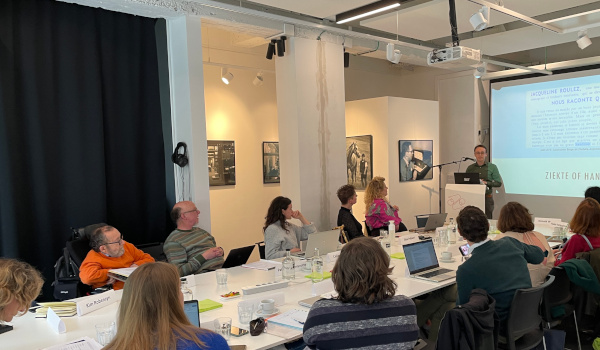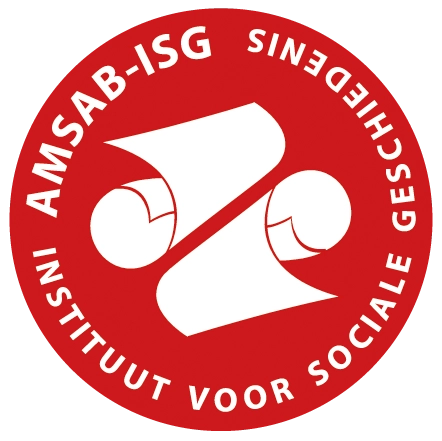Op uitnodiging van Amsab-ISG kwamen een twintigtal experten samen op 3 mei voor een workshop onder de naam Disability History: Zelfhulporganisatie en streven naar onafhankelijkheid van mensen met een beperking in Vlaanderen en België, 1960 tot heden. Het centrale thema was de rol die zelfhulporganisaties hebben gespeeld in de historische strijd voor de emancipatie van mensen met een beperking. Anaïs Van Ertvelde was keynote speaker over haar nieuwe boek, Handicap, een bevrijding, en Tim Debroyer (KU Leuven) stelde zijn doctoraatsonderzoek voor rond de geschiedenis van zelfhulporganisaties. Vervolgens lieten we het woord aan enkele ervaringsdeskundigen uit het veld en sloten we af met een rondetafelgesprek.
Bij Amsab-Instituut voor Sociale Geschiedenis bewaren wij het archief van organisaties gelinkt aan emancipatiebewegingen. Wij geloven dat de nadruk in de hedendaagse geschiedschrijving rond handicap in België nog te vaak ligt op de zorgsector en niet op de betrokkenen zelf. Nochtans hebben die laatsten zich succesvol verenigd in hun strijd voor erkenning. Daarom probeerden wij deze organisaties mee te betrekken in de workshop. Op de workshop waren alvast onder meer medewerkers aanwezig van GRIP, een mensenrechtenorganisatie voor mensen met een handicap, en van ENIL, de internationale beweging voor onafhankelijk leven.
Met onze workshop brachten we het perspectief van mensen met een beperking en hun zelfhulporganisaties naar voren. Veel van hun geschiedenis blijft immers onderbelicht. De workshop vormde hopelijk een aanzet om hierin verandering te brengen. Het ultieme doel was om in een lerend netwerk banden te smeden tussen onderzoekers, zelfhulporganisaties en archiefcentra, en verder onderzoek naar het thema te faciliteren. Op het einde van de workshop werd alvast afgesproken om via een mailing bijeenkomsten te organiseren in de vorm van een lerend netwerk. Ook voor een nieuwsbrief en gezamenlijke projecten als bijvoorbeeld mondelinge geschiedenis rond de pioniers van de beweging bleek interesse. Wordt dus vervolgd.








